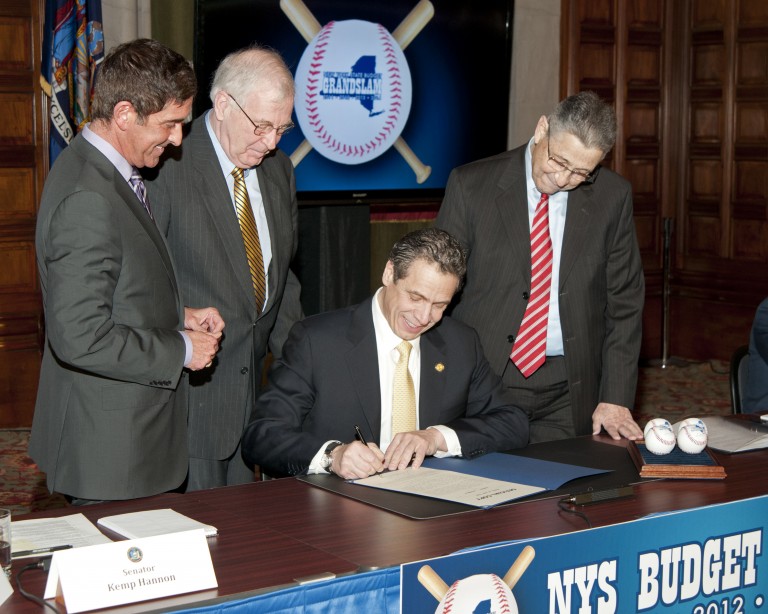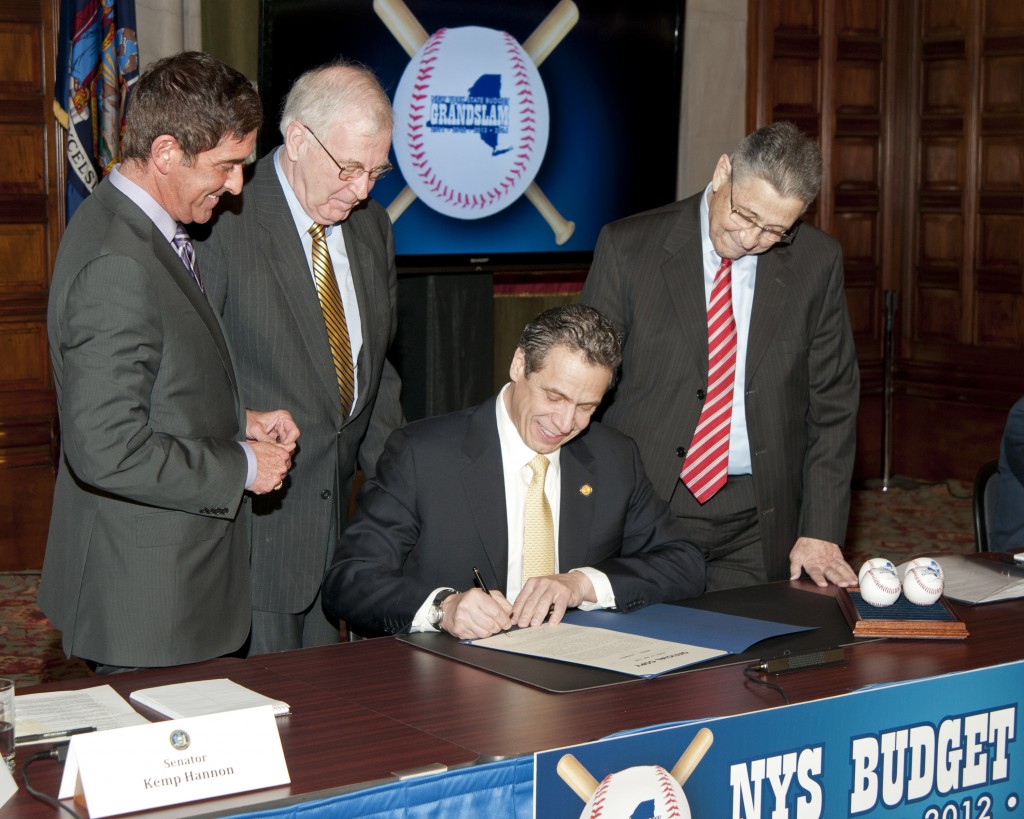The $140 billion budget approved by New York legislators late Monday landed both praise and criticism from Queens officials, with a thumbs-up being given for the millions of dollars slated to go to storm preparedness while other concerns were voiced over an absence of campaign finance reform.
The 2014-15 fiscal year budget was the fourth one to be passed on time – a notable feat for a state that has routinely been embroiled in tedious budget battles waged long after lawmakers’ April 1 deadline to greenlight the financial document. In its release Monday, Gov. Andrew Cuomo’s office noted that a budget has not been approved on time for four consecutive years in more than 40 years – not since the days of Gov. Nelson Rockefeller.
“This budget builds on the state’s progress over the past three years in order to grow the economy and create new opportunities for New Yorkers and their families,” Cuomo said in a prepared statement. “This budget maintains the fiscal discipline that has characterized the last three years of progress by holding the growth in spending below 2 percent, while also making broad tax cuts that will help homeowners and businesses thrive.”
The governor went on to praise the agreement, saying it “contains targeted investments that will transform our schools, ensure safer, cleaner, and fairer communities, and restore the public’s trust in government.”
Assemblyman Phil Goldfeder (D-Rockaway Park) threw his support behind the budget, praising it for including funding for what he said were vital services and programs to prepare post-Sandy communities across the state for potential natural disasters.
“After months of working with both Gov. Cuomo and my colleagues, this year’s state budget provides real relief and resiliency for our families and small businesses still recovering in southern Queens and Rockaway,” Goldfeder said. “This budget will not only provide our communities with upgraded weather technology, but it will fund the resources needed to assist our families with disaster-relief planning and help us rebuild stronger.”
The new budget establishes a State-of-the-Art Weather Detection System. It will be supported by the Division of Homeland Security and Emergency Services, which will collaborate with an academic partner to secure a private entity to form and operate the system – one of only six in the nation.
The budget also includes $15 million in capital resources to fund initial planning and development costs for a new College of Emergency Preparedness, Homeland Security and Cybersecurity.
Queens Chamber of Commerce President Al Pennisi too lauded the budget, saying it will “ensure that the economy in Queens, and the rest of the city and state, will continue to grow.”
He went on to say that borough business leaders are “pleased to see the manufacturing tax will become zero this year, while establishing a real property tax credit for manufacturers who own or lease property, helping to revitalize manufacturing industry in the city.”
But not everyone was high-fiving Cuomo over the budget, and state Sens. Joe Addabbo Jr. (D-Howard Beach) and Toby Stavisky (D-Whitestone) said the governor should have included campaign finance reform in this year’s agreement.
While calling the budget “fiscally responsible” and saying it boosts “educational opportunities for our children,” Addabbo said the budget “does miss a golden opportunity to implement a full campaign finance program for all state elections, which would have addressed the issue of campaign corruption and the influence of large monetary donations, an issue that has plagued Albany for decades.”
Stavisky echoed these concerns, slamming what she was an absence of true reform in the budget.
“The role of money in campaigns is a persistent problem in this legislature,” Stavisky said on the Senate floor. “The proposal that is currently in the budget is a half-hearted, watered down proposal.”
The budget includes a pilot program for public campaign financing, but only for the state comptroller’s race this year. Citizens Union, a good government group that has long advocated for campaign finance reform, criticized this, arguing that corruption has been centered in New York’s legislature.
While the budget does not include a larger campaign finance program, lawmakers are expected to vote on a measure later this session that would create a system akin to New York City’s, in which small individual contributions would be matched with public dollars on a 6-to-1 basis. The program would be phased in by 2020 if approved.
As part of the budget deal, lawmakers agreed to spend $340 million annually on free full-day pre-kindergarten for 4-year-olds, with $300 million of that going to New York City. While Mayor de Blasio did not receive the go-ahead he needed to increase taxes on city residents earning $500,000 or more to fund a universal pre-kindergarten program, he said the $300 million from the state each year for the next five years was welcome.
“This state has made a powerful and historic decision that will change the lives of tens of thousands of children,” de Blasio said in a prepared statement.
By Anna Gustafson


